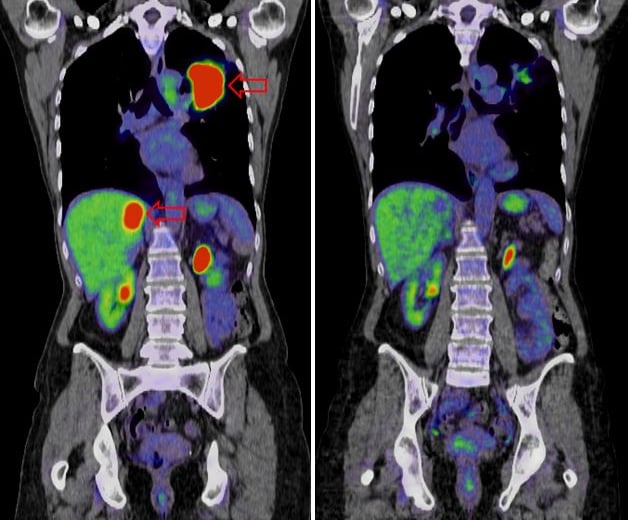Understanding Liver Cancer: Symptoms, Causes, and Treatment
Learn about Liver Cancer, its symptoms, causes, and treatment options. Stay informed to recognize and manage this serious condition. #LiverCancer #HealthAwareness


Liver cancer, also known as hepatocellular carcinoma, is a type of cancer that originates in the cells of the liver. It is a serious condition that requires prompt medical attention. In this article, we will explore the symptoms, causes, and treatment options for liver cancer.
Symptoms of Liver Cancer
The early stages of liver cancer often do not exhibit any noticeable symptoms. However, as the disease progresses, the following symptoms may occur:
Unexplained weight loss
Loss of appetite
Abdominal pain or swelling
Fatigue and weakness
Nausea and vomiting
Yellowing of the skin and eyes (jaundice)
Changes in bowel movements
If you experience any of these symptoms, it is important to consult a healthcare professional for a proper diagnosis.
Causes of Liver Cancer
Several factors can increase the risk of developing liver cancer:
Hepatitis B or C infection: Chronic infection with hepatitis B or C viruses is a significant risk factor for liver cancer.
Cirrhosis: Liver cirrhosis, often caused by excessive alcohol consumption or non-alcoholic fatty liver disease, can increase the risk of liver cancer.
Aflatoxins: Exposure to aflatoxins, which are produced by certain types of fungi that contaminate food, can increase the risk of liver cancer.
Family history: Having a family history of liver cancer can increase the likelihood of developing the disease.
Diabetes: People with diabetes have a higher risk of developing liver cancer.
It is important to note that not everyone with these risk factors will develop liver cancer, and some individuals without these risk factors may still develop the disease.
Treatment of Liver Cancer
The treatment options for liver cancer depend on the stage of the disease and the overall health of the patient. The following are common treatment approaches:
Surgery: Surgical removal of the tumor may be an option for early-stage liver cancer.
Transplantation: In cases where the tumor cannot be removed surgically, a liver transplant may be considered.
Chemotherapy: Chemotherapy uses drugs to kill cancer cells or slow their growth. It can be administered orally or intravenously.
Radiation therapy: This treatment uses high-energy beams to target and destroy cancer cells.
Targeted therapy: Targeted therapy drugs are designed to specifically target cancer cells and inhibit their growth.
It is important to consult with a healthcare professional to determine the best treatment plan based on individual circumstances.
Conclusion
Liver cancer is a serious condition that requires early detection and prompt medical intervention. Recognizing the symptoms, understanding the risk factors, and seeking appropriate treatment can greatly improve the chances of successful outcomes. Regular check-ups, maintaining a healthy lifestyle, and managing risk factors can also contribute to liver cancer prevention. If you suspect any symptoms or have concerns about liver health, it is crucial to consult a healthcare professional for a proper diagnosis and guidance.
